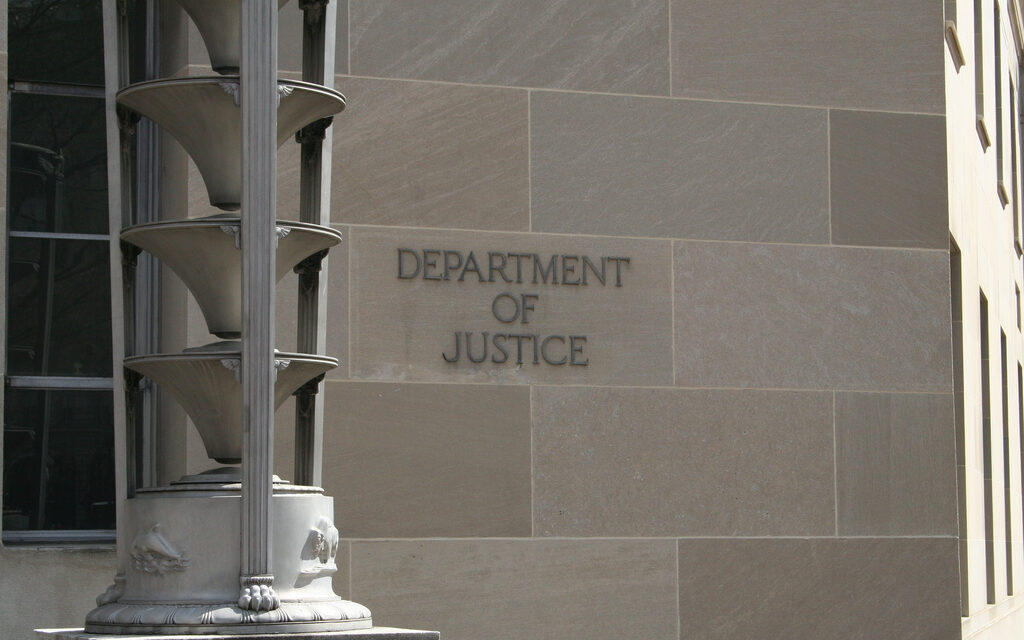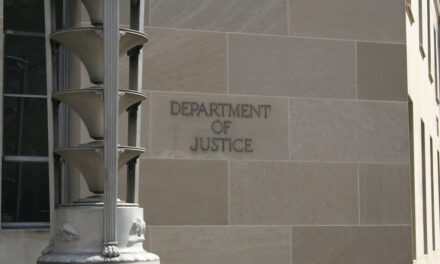Actually, my title isn’t precisely accurate. But, bear with me a minute, because though the majority decision in BOUMEDIENE v. BUSH to allow Gitmo detainees the right to challenge their detentions in the federal courts using the writ of habeas corpus is certainly welcomed, I doubt anything is going to really change until George W. Bush leaves office. And if John McCain becomes our President, nothing at all will change.
First, lets be clear as to what the decision did and did not do. The sole issue before the Court was whether non-citizen detainees at Guantanamo Bay, who had been adjudged enemy combatants by the President, had the right to challenge their detentions in federal court using the writ of habeas corpus, or whether Congress had constitutionally eliminated that avenue of judicial review when it passed the Military Commissions Act (hereafter “MCA” for short) in 2006. In effect, the legal questions involved were these:
1. Do the federal courts, including the Supreme Court, have jurisdiction [i.e., the power and authority] to hear the appeals by the detainees for habeas corpus review after the passage of the MCA?
2. Specifically, did Congress, in passing the MCA, lawfully exercise its power under the “Suspension Clause” of the Constitution (Article I, §9, cl. 2) which provides that “[t]he Privilege of the Writ of Habeas Corpus shall not be suspended, unless when in Cases of Rebellion or Invasion the public Safety may require it.”?
3. Even if the Federal Courts retain jurisdiction to hear the detainees’ appeals, are individuals who are not citizens, and who were captured by the US military in a combat zone, entitled to the protection of the writ of habeas corpus when the detainees are confined outside the United States at a place (Guantanamo Bay) over which the United States does not claim legal sovereignty?
4. Does the MCA, and the Detainee Treatment
Act of 2005 (DTA) which it amended, provide an alternate form of due process for the detainees to challenge their detentions as “enemy combatants” which is functionally equivalent to the review granted under the 28 U. S. C. §2241, the habeas corpus statute, such that granting them additional habeas corpus protection is unnecessary?
For those of you who know little or nothing about the writ of habeas corpus, which allows any person who is being held in the custody of a governmental authority to challenge the lawfulness of their detention in federal court, I can offer you no better explanation of the writ and its history in English and American law than this from Justice Kennedy’s majority decision in BOUMEDIENE v. BUSH:
We begin with a brief account of the history and origins of the writ. Our account proceeds from two propositions. … [P]rotection for the privilege of habeas corpus was one of the few safeguards of liberty specified in a Constitution that, at the outset, had no Bill of Rights. In the system conceived by the Framers the writ had a centrality that must inform proper interpretation of the Suspension Clause. […]
The Framers viewed freedom from unlawful restraint as a fundamental precept of liberty, and they understood the writ of habeas corpus as a vital instrument to secure that freedom. Experience taught, however, that the common-law writ all too often had been insufficient to guard against the abuse of monarchial power. That history counseled the necessity for specific language in the Constitution to secure the writ and ensure its place in our legal system. Magna Carta decreed that no man would be imprisoned contrary to the law of the land. . . . The writ was known and used in some form at least as early as the reign of Edward I. . . . Yet at the outset it was used to protect not the rights of citizens but those of the King and his courts. The early courts were considered agents of the Crown, designed to assist the King in the exercise of his power. […]
Even so, from an early date it was understood that the King, too, was subject to the law. As the writers said of Magna Carta, “it means this, that the king is and shall be below the law.” . . . And, by the 1600’s, the writ was deemed less an instrument of the King’s power and more a restraint upon it. […]
Still, the writ proved to be an imperfect check. Even when the importance of the writ was well understood in England, habeas relief often was denied by the courts or suspended by Parliament. Denial or suspension occurred in times of political unrest, to the anguish of the imprisoned and the outrage of those in sympathy with them. […]
This history was known to the Framers. It no doubt confirmed their view that pendular swings to and away from individual liberty were endemic to undivided, uncontrolled power. The Framers’ inherent distrust of governmental power was the driving force behind the constitutional plan that allocated powers among three independent branches. This design serves not only to make Government accountable but also to secure individual liberty. […]
That the Framers considered the writ a vital instrument for the protection of individual liberty is evident from the care taken to specify the limited grounds for its suspension: “The Privilege of the Writ of Habeas Corpus shall not be suspended, unless when in Cases of Rebellion or Invasion the public Safety may require it.” […]
In our own system the Suspension Clause is designed to protect against these cyclical abuses. The Clause protects the rights of the detained by a means consistent with the essential design of the Constitution. It ensures that, except during periods of formal suspension, the Judiciary will have a time-tested device, the writ, to maintain the “delicate balance of governance” that is itself the surest safeguard of liberty. . . . The Clause protects the rights of the detained by affirming the duty and authority of the Judiciary to call the jailer to account.
The court then addressed each of the legal questions necessary to determine whether the detainees could use the habeas corpus to appeal their detentions by the Executive branch of the federal government, or whether their recourse to the federal courts was barred except for the limited review established by the MCA, whereby the detainees can ask the Court of Appeals to review only the lawfulness of the process by which they were adjudicated enemy combatants (the so-called Combatant Status Review Tribunals). In effect, it held the following:
Noncitizen aliens are entitled to request habeas corpus review of their detentions by the President and the US Military despite the MCA. The fact that the detainees are held at Guantanamo Bay does not prohibit them for exercising their right to the writ to challenge their detentions, even though the United States does not claim legal sovereignty over Guantanamo Bay, because as a practical matter, the military base at Gitmo is under the complete control of the United States, and the detainees have no right to appeal their detentions to the legal sovereign, the nation of Cuba. The Constitution, including the Suspension Clause, applies to Guantanamo Bay regardless of the question of legal sovereignty. As Kennedy’s majority opinion noted, “‘as early . . . 1922, the Court took for granted that even in unincorporated Territories the Government of the United States was bound to provide to noncitizen inhabitants “guaranties of certain fundamental personal rights declared in the Constitution.’”
Furthermore, habeas corpus review by the Judiciary is especially important when the detention results from the independent action of the Executive Branch, without any of the protections of due process provided by a judicial trial or other hearing. And, since the procedures established by the MCA and DTA are patently inadequate on their face (no right to counsel, no effective right to cross-examine witnesses, the liberal use of hearsay permitted, the inability to present evidence of exculpability after the the determination of combatant status had been adjudicated, etc.) the provisions of the MCA which denied habeas corpus relief to the detainees at Gitmo are unconstitutional under the requirements of the Suspension Clause (which as you recall requires a foreign invasion or domestic insurrection before Congress can suspend the writ). Since the government had demonstrated no practical or “prudential” rationale for denying these prisoners the privilege of habeas corpus, they are entitled to exercise it to gain judicial review of the legality of their imprisonment by the Bush administration.
The majority in Boumediene based the essence of their opinion on the separation of powers doctrine. In short, they said the Congress and the President could not cut off the power of the federal courts to review the actions of the executive and legislative or determine what is or is not constitutional, nor what rights the constitution grants to individuals, even if those individuals are not US citizens and are held at a military base in Cuba.
Our basic charter cannot be contracted away . . . The Constitution grants Congress and the President the power to acquire, dispose of, and govern territory, not the power to decide when and where its terms apply. . . . Abstaining from questions involving formal sovereignty and territorial governance is one thing. To hold the political branches have the power to switch the Constitution on or off at will is quite another. The former position reflects this Court’s recognition that certain matters requiring political judgments are best left to the political branches. The latter would permit a striking anomaly in our tripartite system of government, leading to a regime in which Congress and the President, not this Court, say “what the law is.” Marbury v. Madison, 1 Cranch 137, 177 (1803).
These concerns have particular bearing upon the Suspension Clause question in the cases now before us, for the writ of habeas corpus is itself an indispensable mechanism for monitoring the separation of powers. The test for determining the scope of this provision must not be subject to manipulation by those whose power it is designed to restrain.
We hold that Art. I, §9, cl. 2, of the Constitution has full effect at Guantanamo Bay. If the privilege of habeas corpus is to be denied to the detainees now before us, Congress must act in accordance with the requirements of the Suspension Clause. […]
The MCA does not purport to be a formal suspension of the writ; and the Government, in its submissions to us, has not argued that it is. Petitioners, therefore, are entitled to the privilege of habeas corpus to challenge the legality of their detention.
So why the pessimism implicit in my title? Because the Bush administration has shown the ability to stall, delay and ignore the demands of the federal courts for 6 years when it comes to “enemy combatants” in its custody, and they show no signs of suddenly agreeing to abide by judicial decisions which go against them merely because five justices on the Supreme Court say they must. Indeed, the Attorney General has already indicated that the Supreme Court’s decision will have no effect on the military “terror” trials of various alleged Al Qaeda figures planned to be held at Guantanamo this Fall, nor will it stop the Bush administration from seeking new legislation to overrule the Court’s decision in Boumediene.
The Bush administration disagrees strongly with the high court’s decision that the foreigners held under indefinite detention at the Guantanamo naval base in Cuba have the right to seek release in civilian court. President Bush said Thursday he would abide by the decision, but also said his administration was evaluating whether to respond to the court’s ruling with new legislation.
In Brussels, Belgium, on Friday, Defense Secretary Robert Gates said he would reserve judgment on “what we ought to do next” at Guantanamo until he received briefings on the ruling. […]
It should be noted that the Boumediene decision is limited to prisoners held at Gitmo. It has no direct bearing on prisoners held at other sites, including secret CIA prisons or at military bases in Afghanistan or Iraq, which, since they are situated in “combat zones,” may see a sudden influx of prisoners after transfer from Guantanamo Bay. The Court specifically left open the question of whether detainees held at military facilities located in combat zones would, under its reasoning, have the same right to request habeas corpus review as the prisoners held at Gitmo for the past six years. Certainly, that is an option of which President Bush can avail himself if he desires to attempt yto avoid the effect of the Court’s ruling. And nothing John McCain has said on the campaign trail has indicated he would make any substantive changes to the Bush policy regarding “enemy combatants” or other detainees in the Watr on Terror.
The Court has done what it needed to do to preserve its integrity, its authority and the protections provided to us under the Constitution. However, in the absence of an Executive Branch willing to comply with judicial determinations as to what is, and what is not, the law of the land, we must wait for a change in the person sitting in the White House to give this decision any real effect. until then, nothing has changed. And that is the true legacy of the Bush administration and its relentless grab for power. Unless the executive branch is willing to acknowledge the power and authority of the other branches, we are in effect a dictatorship in all but name only.





